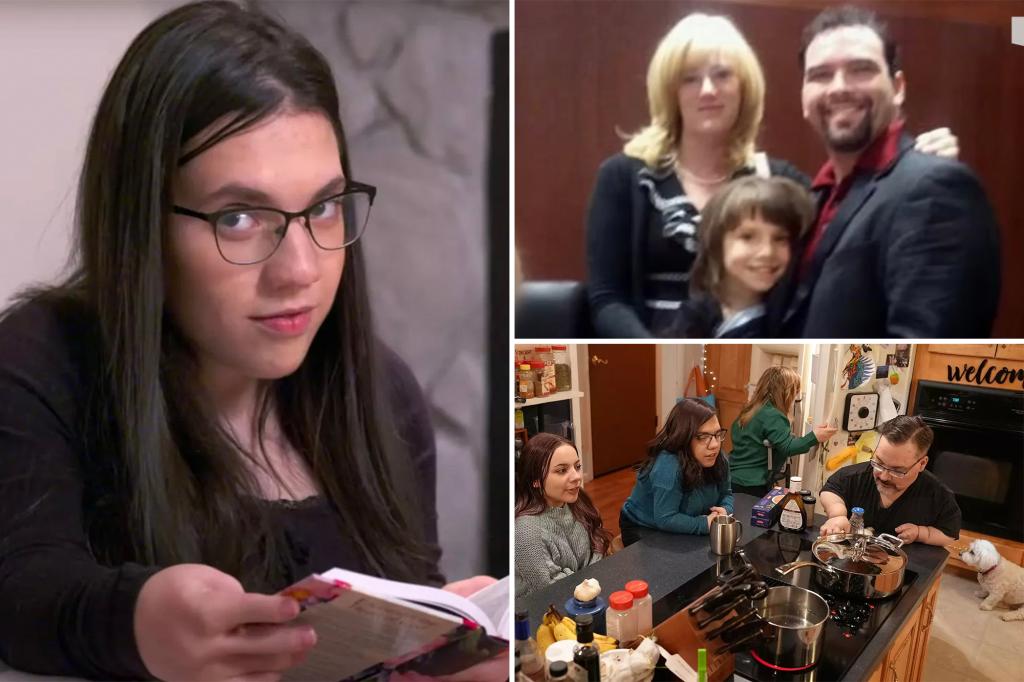The story of Natalia Grace unfolds as a complex and unsettling narrative of adoption, abandonment, and alleged abuse, spanning over a decade. Initially adopted from Ukraine by Michael and Kristine Barnett, the narrative quickly spirals into a disturbing tale of accusations and counter-accusations. The Barnetts claimed that Natalia was not a child, but rather a sociopathic adult masquerading as a six-year-old, capable of inflicting both emotional and physical harm. They painted a picture of a menacing figure, lurking over them with a knife in the dead of night. Natalia vehemently denied these claims, asserting her true age and innocence. Adding to the bewildering nature of events, despite evidence supporting Natalia’s claims about her age, the Barnetts legally changed her birthdate, effectively aging her into adulthood. This act set the stage for the subsequent abandonment that would shape Natalia’s life for years to come.
The abandonment by the Barnetts marked a turning point, leading to Natalia’s adoption by Cynthia and Antwon Mans. However, this new chapter offered little respite from the alleged trauma. Natalia’s account portrays the Mans household as another site of abuse, forcing her to flee in the middle of the night with the assistance of her boyfriend, Neil. This desperate escape underscored the ongoing instability and vulnerability that marked her life. The recurring pattern of adoption followed by alleged abuse paints a tragic portrait of a young woman seeking stability and acceptance, only to be met with repeated disappointment and hardship. The alleged experiences with both the Barnetts and the Mans raise serious questions about the vetting processes and support systems surrounding international adoptions, highlighting the potential for vulnerable children to fall prey to exploitative or abusive situations.
Finally, after years of upheaval and alleged mistreatment, Natalia found a semblance of stability and belonging with Nicole and Vince DePaul in upstate New York. The DePauls, who also have dwarfism, had previously attempted to adopt Natalia in 2009 but were denied. Their renewed connection offered a glimmer of hope for a brighter future. The initial stages of this new arrangement were fraught with challenges, as the Mans allegedly continued to interfere, attempting to draw Natalia back into their orbit. Nicole DePaul describes navigating a delicate balance, providing guidance without imposing control, mindful of Natalia’s past experiences with allegedly dictatorial environments. The DePauls’ emphasis on creating a supportive and nurturing environment stands in stark contrast to the allegations of abuse that characterized Natalia’s previous adoptive homes.
The DePauls vehemently defend Natalia’s character, emphasizing her gentle nature and dismissing the accusations of violence levied against her by the Barnetts. They acknowledge the possibility of past eccentricities but reaffirm their commitment to providing unconditional love and acceptance. Nicole DePaul’s poignant statement, “When you take in a child, you take that child as your own. You don’t just get rid of them when they don’t fit into your puzzle,” encapsulates the essence of their parenting philosophy, centered on unwavering support and a refusal to abandon a child in need. Their perspective challenges the notion of disposability that seemingly underpinned the Barnetts’ actions, highlighting the fundamental responsibility inherent in adopting a child.
Natalia’s own account of her time with the DePauls speaks to a newfound sense of freedom and belonging. She expresses her enduring affection for the couple and laments the past restrictions that prevented them from maintaining contact. The DePauls’ home appears to offer a haven, a place where she can finally begin to heal from the trauma of her past experiences. The contrast between the alleged abuse and neglect she endured in previous homes and the nurturing environment provided by the DePauls underscores the transformative power of genuine care and acceptance. Natalia’s statement, “I feel free,” encapsulates the profound impact of finally finding a stable and loving home.
Beyond finding a stable home environment, Natalia is actively pursuing personal growth and educational goals. She is engaged in therapy to address the lingering effects of past trauma, demonstrating a proactive approach to healing and self-improvement. Furthermore, she is pursuing her GED, aspiring to become a teacher, a goal that reflects her resilience and determination to build a positive future. Natalia’s pursuit of education and her commitment to therapy signify a desire to overcome adversity and shape her own destiny. Her story serves as a testament to the human capacity for resilience and the transformative power of love and acceptance in the face of profound hardship. It underscores the importance of providing vulnerable children with stable, nurturing environments where they can thrive and reach their full potential. Natalia’s journey also highlights the critical need for thorough vetting processes and ongoing support systems within the adoption system to protect children from exploitation and abuse.

